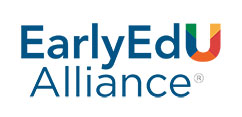California Transitional Kindergarten – Scaling-up Challenges
California Transitional Kindergarten Case Study
Scaling Up Challenges
Lawmakers and early childhood education advocates who have supported universal TK in California acknowledge that program quality in the state has been uneven. NIEER reported in 2020 that California TK fell short of 7 of 10 quality benchmarks including teacher credentials and class size. (The new universal TK policy addresses both issues.) In contrast, the PPIC (2020) report points to two recent studies that indicate short- and long-term benefits from California’s TK programs, especially for specific groups such as English language learners. One of these studies is from the American Institutes for Research,16Karen Manship, et al, “The Impact of Transitional Kindergarten on California Students,” San Mateo, CA:American Institutes of Research: (June 2017) Executive Summary. which surveyed 6,000 children and found that those who attended the program “were better prepared for kindergarten than those who did not” and that they experienced a 3- to 6-month learning advantage in mathematics and literacy skills.
UC Berkely’s professor Bruce Fuller, whose research also indicates gains from TK programs, writes, “We have about a half century of research now showing that quality pre-k for 4-year-olds and 3-year-olds yields strong and sometimes sustained effects for poor kids. We know much less about the effects of pre-K or TK on middle-class kids. But the evidence is clear that for lower-income kids—if we can get the quality right—[preschool] will yield strong effects in early language development, pre-literacy skills, social agility for young kids in the classroom, and emotional growth.”17California Schools, California School Board Association, Spring 2022. The 2021 education package provides several tools to improve program quality, starting with efforts to recruit, train, and retain teachers. Fuller cautions that a steep learning curve is ahead: “A lot of districts have never had TK and don’t have a single early childhood specialist.”18Bruce Fuller, “A Conversation with Bruce Fuller,” Interview by California Schools, California Schools, Spring 2022.
Beth Meloy, a consultant with the California’s Department of Education who works on P-3 alignment policy, predicts that the state will need from 11,000 to 16,000 new teachers by 2025–26 for universal TK. With full implementation of the state’s comprehensive preschool expansion, the need arises to 21,000 new educators. Driving the demand for teachers is ambitious teacher student ratios in the 2021 law: 1:12 by the end of 2022–23 school year and 1:10 by the 2023–24 school year, compared with 1:24 before implementation of universal TK. Contributing to this ambitious target is the fact that every TK classroom is required to have, in addition to a fully credentialed teacher, an instructional aide. “It’s going to be a huge lift” recruiting and training the needed teachers, Meloy predicts.19Beth Meloy, interviewed by Alice Porter, May 26, 2022.
Another resource challenge concerns school facilities. The 2021 budget law that authorizes universal TK includes $490 million to support the construction and renovation of state preschool, transitional kindergarten, and kindergarten facilities. That task is ambitious, given that most K–12 school environments can be unworkable for 4-year-old children. “You need little toilets, you need little desks,” writes Fuller, who also points out that the state has moved more slowly than expected in allocating money for new facilities and classroom renovation. Edgar Zazueta, Executive Director of Association of California School Administrators, cautions that some schools in urban areas may lack the physical footprint to expand to any great extent.
Citations
- 16. Karen Manship, et al, “The Impact of Transitional Kindergarten on California Students,” San Mateo, CA:American Institutes of Research: (June 2017) Executive Summary.
- 17. California Schools, California School Board Association, Spring 2022.
- 18. Bruce Fuller, “A Conversation with Bruce Fuller,” Interview by California Schools, California Schools, Spring 2022.
- 19. Beth Meloy, interviewed by Alice Porter, May 26, 2022.
